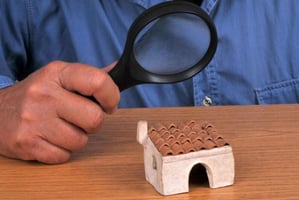Property Management
Dealing with a Septic Tank Explosion at Your Rental
Property Management
Many responsibilities fall on your shoulders as a landlord or property manager. Keeping up with repairs, adopting adequate security measures, and checking in with renters to ensure they comply with the rules are all essential components of effective property management. However, no matter how prepared you are, emergencies will inevitably arise.
Septic tanks are an integral part of the waste management system in many rental properties. A little over 21 million homes in the United States rely on septic tanks as their primary method of waste disposal. These systems collect and store solid and liquid waste from households. However, they can only retain so much before they overflow, unlike a public sewer system that connects to a more extensive drainage network. If a septic tank explodes in your rental property, you will be saddled with handling it. This article will guide you through what to do if there are septic tank issues at a rental property.
Steps To Take When the Septic System Fails
Encountering a malfunctioning septic system may seem overwhelming. To help you out, we will share a few steps you need to take when this occurs. Stay away from any sewage that has backed up into your rental property, as it may contain disease-causing pathogens. For help, get in touch with the appropriate health or government body in your area. Cleaning crew members should equip themselves with safety gear such as long rubber gloves and face splash shields.
When you're done with the cleanup, it's important to give everything you used a good washing, including the tools and clothes you wore. Be sure to use a solution of 10% household bleach and 90% water to thoroughly disinfect any potentially contaminated items and surfaces.
Drying off the area thoroughly and waiting a minimum of 24 hours before using it is recommended. Then, contact a septic system repair and maintenance company, the local health department, or the organization responsible for regulating on-site sewage treatment facilities.
Why Do Septic Systems Fail?
Septic systems can fail for various reasons, including harsh weather and the introduction of grease and non-biodegradable materials. Extreme weather, such as prolonged rainfall, flooding, or snowfall, can overwhelm a drain field and lead to sewage backup if the system is not regularly maintained.
However, a water leak that forces too much water into the drainage field or septic system can lead to a backup or breakdown just as easily as a massive storm. For this reason, it's crucial to schedule regular inspections of your rental property's plumbing and septic system. Your landscape should also be checked. Roots from bushes and trees can clog drains and break pipes.
Poor planning and maintenance are usually to blame when septic systems fail. Sometimes, soil-based systems are placed on unsuitable terrains, such as on steep slopes or in areas with a lot of underground water. As a result, these situations can pollute surrounding water supplies and lead to hydraulic breakdowns.
Solid waste in the tank can move to the drainage system and clog it if regular maintenance isn't performed. A septic tank should have its contents pumped out at least once every 3 to 5 years as part of routine property management maintenance. Using less water and other products will put less stress on the system, increasing its lifespan.
Common Signs of a Malfunctioning Septic System
Worried that your rental property's septic system isn't functioning correctly? If so, here are some symptoms of a failing septic system:
Septic System Overflow
All your rental property's plumbing fixtures and fittings are linked to the septic tank. Wastewater and sewage will stop going into the tank if the septic system is full or malfunctioning. It will remain in the plumbing until it is forced upward. This causes wastewater and sewage to back into fixtures like the sink, bathtub, and toilet. When a septic tank fails, this is the first thing people notice. If your tenants experience this problem, don't hesitate to call a professional plumber.
Slow Drainage
Slow drainage might also be caused by a malfunctioning septic tank. If a sewage system is already full, it cannot accept any additional wastewater. This will result in sewage backing up into your home's plumbing system and making it difficult to flush toilets and other fixtures, if not impossible. Because of this, liquids such as water will take longer to drain than they used to.
Gurgling Noises
It's also important to listen out for unusual noises when using plumbing fixtures. For instance, you should immediately call a plumber if there are rumbling sounds when flushing your toilet. The sounds a toilet makes during flushing are usually associated with water and stop once the flush is finished. But if it sounds like an upset stomach, something is definitely wrong.
Damp Area or Puddle Next to Drainage System
As mentioned earlier, a septic tank that has stopped working will no longer be able to collect wastewater. Because of this, sewage will naturally soak through the soil. The area around the drain field may become moist, or a huge pool of sewage may accumulate. If you are concerned that your septic system is full or damaged, you should watch out for these signs.
Foul Smells
If foul odors are present around plumbing fixtures or the drain field, it's a sure indicator that the septic system is failing. This may also be the case if tenants notice a strong, unpleasant odor when they step out onto the yard. You can draw the same conclusion about your rental property if it contains offensive smells.
Sudden Algal Blooms in the Area
Keep an eye out for unexpected algal blooms if you live near a body of water like a pond or lake. In some cases, it can be difficult to detect this symptom because algae are generally accepted as something natural. However, when a lot of algae grows in a body of water, that's called an algal bloom. This phenomenon gives the impression that water has been polluted to an unhealthy degree. When wastewater is present, it might encourage algae to develop unnaturally.
How To Prevent a Septic System Failure
You can extend the life of your rental property's septic system and keep it running smoothly with regular maintenance and attention. Your septic system's effectiveness depends on your actions once it has been planned, placed, and installed. Even a slight septic issue can escalate into a costly disaster without maintenance. Here are the most important septic system maintenance tasks to include in your schedule:
- Inspections: If you want to avoid spending hundreds or even tens of thousands of dollars fixing a significant problem, regular inspections will alert you to issues like pumping, cleaning, and repairs that need to be done.
- Pumping and cleaning: Your septic tank will need to be pumped out at various intervals depending on several factors:
- Septic tank capacity
- Septic tank retention time
- Wastewater volume
- Thickness of the scum and sludge layer
- Amount of solids in wastewater
- Repairs: Taking care of minor problems right away prevents them from growing into major catastrophes. If you've been doing regular maintenance like inspecting, pumping, and cleaning, you might be able to put off expensive repairs.
You might not know much about septic systems, and your tenants may feel the same way. One way to save money on maintenance is to often remind tenants of the right ways to use the septic system at your rental property.
Wrapping Up
Regularly maintaining your septic tank is essential if you care about the safety of your tenants and rental property. By draining and inspecting your septic tank, trained technicians can assess the health of your septic system and perform any necessary repairs to keep it running smoothly. Get on top of your responsibilities using a property management system like ExactEstate. Contact us to request a demo and learn more.


